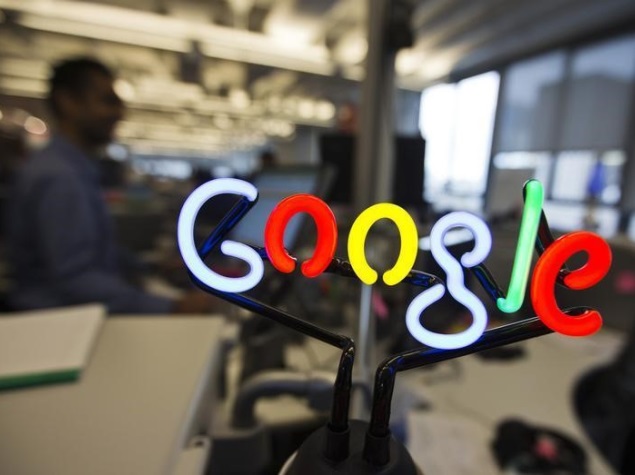- Home
- Internet
- Internet Features
- Tech Giants Scramble for Lead in Exploding Internet of Things Sphere
Tech Giants Scramble for Lead in Exploding Internet of Things Sphere

It's not just smartphones and tablets anymore. The world's tech giants are now battling over a wider array of connected devices, from refrigerators to cars to wristwatches.
Announcements in recent days from Apple and Samsung made clear they are staking their claim to the "Internet of Things" following Google's announcement earlier this year that it was creating a new Android platform for wearable electronics.
"The Internet of Things is the next big platform," said Roger Kay, an analyst with Endpoint Technologies Associates.
"These are potentially billions of devices. That's a big market, so every consortium is lining up for that."
A study released by research firm IDC said the market for the Internet of Things (IoT) will grow from $1.9 trillion in 2013 to $7.1 trillion in 2020 as businesses and consumers adopt smart technology for homes, cars and a variety of accessories.
Apple unveiled Monday its new mobile operating system iOS 8 along with HealthKit software to manage personal healthcare and HomeKit for home appliances, while encouraging developers to create services for the iOS operating system used in iPhones and iPads.
Apple opens up
"Apple iOS 8 has the beginnings of a full-fledged platform supporting IoT, you can see it with their health and fitness hooks and their ability to entertain more third party devices," said Compass Intelligence chief mobile analyst Gerry Purdy.
But Apple is following its own path, aiming for tighter control and with less interoperability by limiting connections with non-Apple devices.
"It may be that Apple will just colonize a few areas and do it well," said Kay.
Samsung, meanwhile, is jumping into the fray with Tizen, an open-source operating system that could take on iOS and Android for connected devices.
Frank Gillett at Forrester Research said Samsung - by far the most successful maker of Android phones and tablets - wants to distance itself from Google in the next phase of technology.
"I think Samsung is in a challenging and difficult place," Gillett told AFP.
"They have been successful in building devices but they don't have a software platform or a consumer relationship."
Gillett said that with Tizen, Samsung is aiming for "a multi-part software and services strategy to build sticky relationships with customers to keep them buying hardware."
Still, he said it was "an uphill battle" for Samsung, which is trying to establish a new platform to compete against Android, iOS and others - including Microsoft's Windows and BlackBerry's QNX, which is widely used in automobile systems.
Richard Windsor of Edison Investment Research says Google has shown it can make money from this strategy of offering Android for free.
"Samsung has mistakenly assumed that it can maintain its 18 percent handset margins by focusing on hardware. Consequently, it has been willing to cede complete control of the ecosystem to Google," he said in a research note.
"This has ensured that Google will grow nicely driven by mobile advertising revenues while we expect Samsung to experience declining earnings."
A wide open market
But the Internet of Things will likely be big enough for several platforms and may not see the same platform wars as the PC or smartphone markets.
"I don't put any platform out there in front," Gillett said.
The analyst said that the market is unlikely to be a "duopoly," and that there "is a whole other layer of complexity" to the market for the Internet of Things.
For now, some analysts see Google as best positioned to benefit from the new phase of the Internet.
Bob O'Donnell at TECHnalysis Research said the Apple strategy "is creating a great reason to stick with Apple devices across all their main categories," but added that "most Apple users don't have all Apple devices."
"Their vision could be made much more effective if they could somehow bring other non-Apple OS devices into the group," O'Donnell said in a blog post.
Kay said Google's ubiquity is giving a reason for developers of apps and other products to use Android.
"Android has been widely adopted and it's an adaptable platform," Kay said. "Developers go to the place with the most seats, because they want to sell to the largest audience."
Catch the latest from the Consumer Electronics Show on Gadgets 360, at our CES 2026 hub.
Related Stories
- Samsung Galaxy Unpacked 2025
- ChatGPT
- Redmi Note 14 Pro+
- iPhone 16
- Apple Vision Pro
- Oneplus 12
- OnePlus Nord CE 3 Lite 5G
- iPhone 13
- Xiaomi 14 Pro
- Oppo Find N3
- Tecno Spark Go (2023)
- Realme V30
- Best Phones Under 25000
- Samsung Galaxy S24 Series
- Cryptocurrency
- iQoo 12
- Samsung Galaxy S24 Ultra
- Giottus
- Samsung Galaxy Z Flip 5
- Apple 'Scary Fast'
- Housefull 5
- GoPro Hero 12 Black Review
- Invincible Season 2
- JioGlass
- HD Ready TV
- Laptop Under 50000
- Smartwatch Under 10000
- Latest Mobile Phones
- Compare Phones
- OPPO Reno 15 Pro Max
- Honor Win RT
- Honor Win
- Xiaomi 17 Ultra Leica Edition
- Xiaomi 17 Ultra
- Huawei Nova 15
- Huawei Nova 15 Pro
- Huawei Nova 15 Ultra
- Asus ProArt P16
- MacBook Pro 14-inch (M5, 2025)
- OPPO Pad Air 5
- Huawei MatePad 11.5 (2026)
- Xiaomi Watch 5
- Huawei Watch 10th Anniversary Edition
- Acerpure Nitro Z Series 100-inch QLED TV
- Samsung 43 Inch LED Ultra HD (4K) Smart TV (UA43UE81AFULXL)
- Asus ROG Ally
- Nintendo Switch Lite
- Haier 1.6 Ton 5 Star Inverter Split AC (HSU19G-MZAID5BN-INV)
- Haier 1.6 Ton 5 Star Inverter Split AC (HSU19G-MZAIM5BN-INV)

















